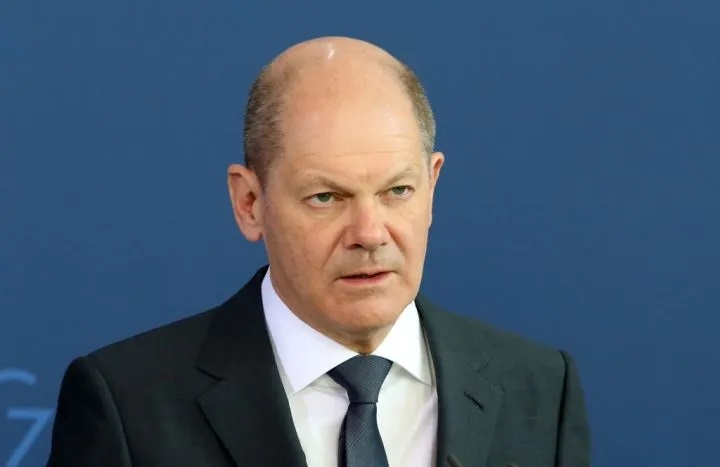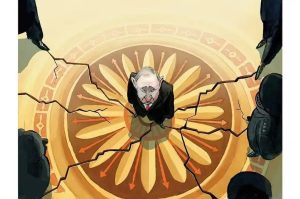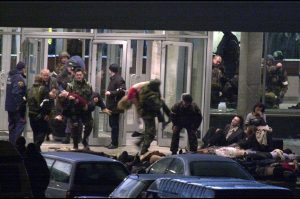Two massive security scandals this weekend have given a shot in the arm to Putin’s war on Ukraine. Yet again they have exposed chancellor Olaf Scholz’s Germany as the West’s weakest link in its ongoing confrontation with Russia.
Scandal Number One came when the loose-lipped chancellor revealed that British and French troops were in Ukraine helping the embattled country’s soldiers operate long range Storm Shadow cruise missiles targeting the Russian invaders. Explaining why Germany would not supply Taurus missiles, its own version of the Storm Shadow system, to Ukraine, Scholz said that doing this would make Germany an active participant in the war.
These are embarrassing and alarming revelations of Berlin’s refusal to show real solidarity with its NATO allies
Scholz’s careless talk potentially put the lives of British troops in peril and immediately drew a storm of criticism from his allies and political opponents. Conservative Member of Parliament Tobias Elwood, former chairman of the Commons Defense Committee, accused him of a “flagrant breach of intelligence” designed to deflect attention from German reluctance in arming Ukraine. In Germany itself, a spokesman for the main opposition CDU party said the social democratic chancellor was being “hugely irresponsible.”
Hard on the heels of Scholz’s blunder came an even more serious security breach. Lieutenant General Ingo Gerhartz, chief of the German Luftwaffe Air Force, held a video conference with three senior colleagues which — astonishingly — was not encrypted. It was promptly picked up and gleefully broadcast in full by Margarita Simonyan, the head of Russia Today, one of Moscow’s state-run TV channels.
Speaking over an unsecured phone line from a hotel room in Singapore, Gen. Gerhartz’s thirty-eight-minute conference call with his colleagues confirmed that British troops were “on the ground” in Ukraine, and were moving the Storm Shadow missiles on Ridgeback transporters. The Luftwaffe chief added that he didn’t know why Scholz was not sending Taurus missiles to help Ukraine’s war.
The two sensitive security breaches by Germany’s top political and military leadership are an embarrassing and alarming revelation of Berlin’s refusal to show real solidarity with its NATO allies in actions rather than words in order to resist Putin’s aggression and stand up to Russian expansionism.
Scholz’s left-wing coalition government was slow to supply Ukraine with tanks and munitions in the first place. It had to be shamed into cutting its almost total reliance on Russian oil and gas to meet its energy needs. Coupled with this economic dependence, Germany has been fearful of annoying Russia, given the grim legacy of the World War Two and Cold War, and the close links with Putin forged by former chancellors Gerhard Schroeder and Angela Merkel.
Germany’s timidity has been underlined by a series of espionage scandals in recent years which have shown just how far Berlin’s own intelligence agencies have been penetrated by Putin’s spies. Germany may be an economic giant, but militarily and diplomatically, when it comes to pulling its weight internationally, it is the Pygmy among western powers.
This article was originally published on The Spectator’s UK website.


























Leave a Reply